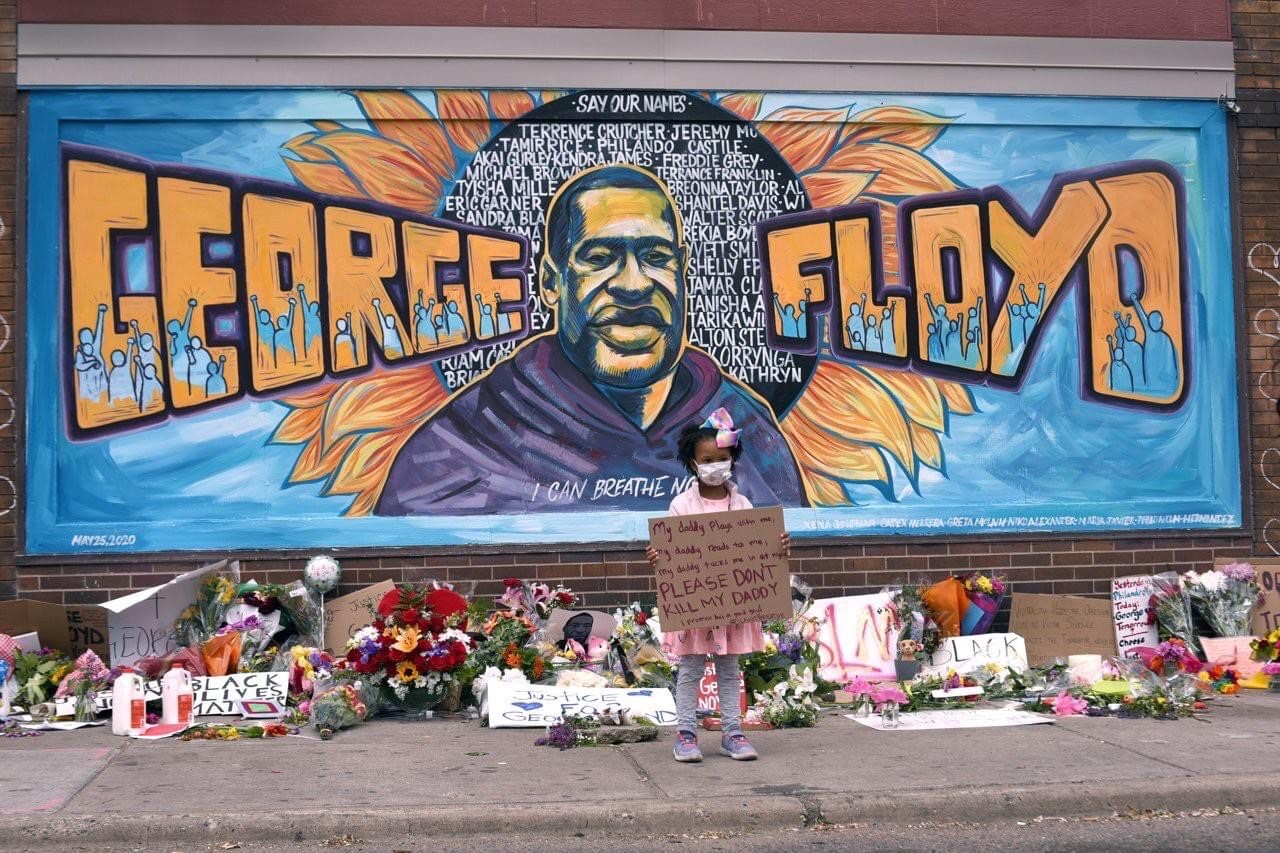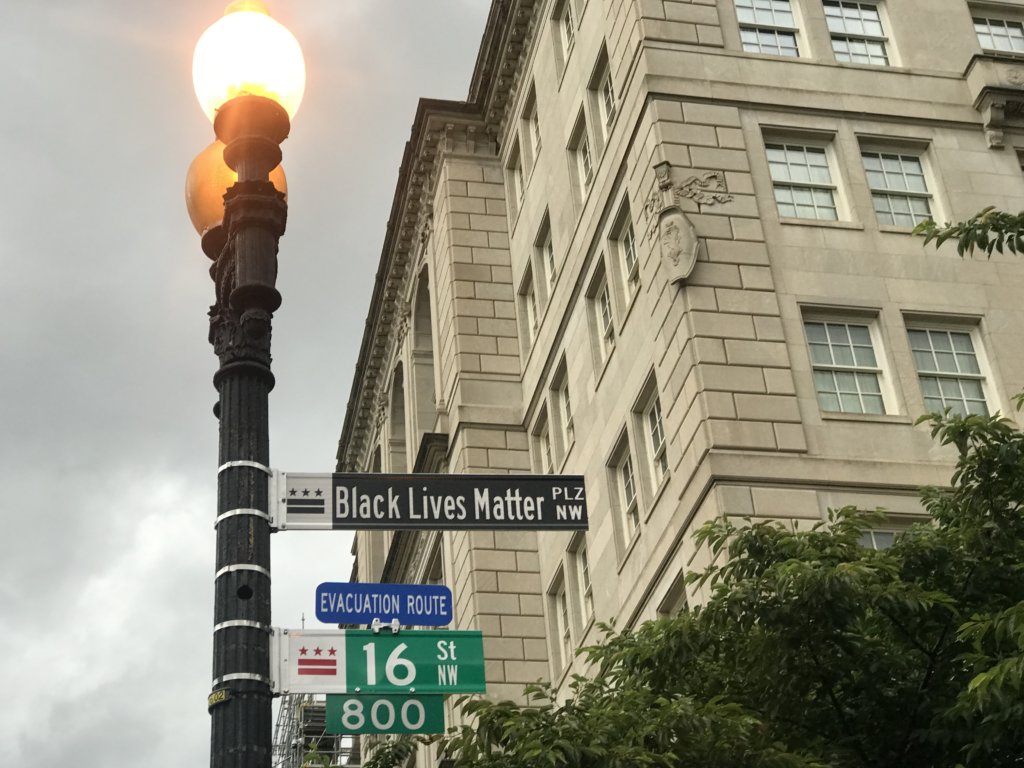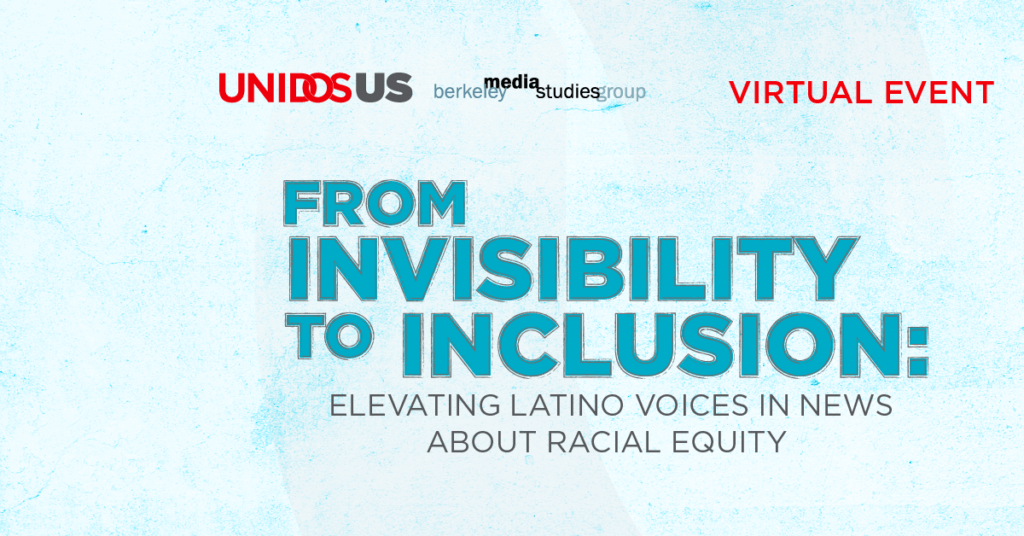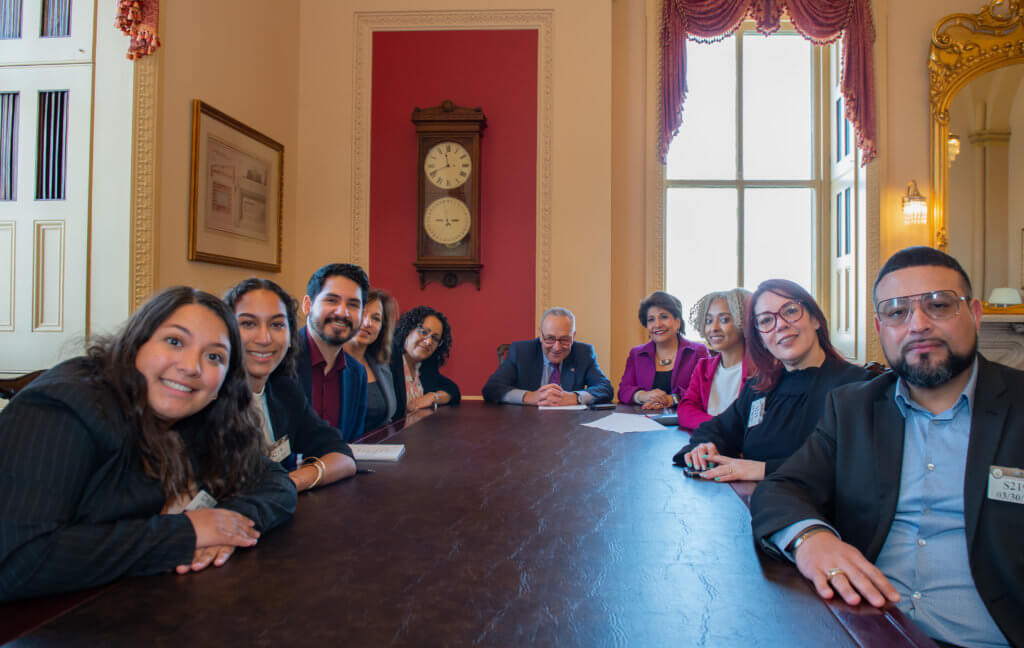On 2nd anniversary of George Floyd’s murder, we mourn and demand action
Two years on, the image of George Floyd’s final minutes remains fresh and clear in my mind. He was unarmed, handcuffed, face down on the ground and surrounded by officers, including one with a knee pressed fatally into his neck.
By Claudia Ruiz, Policy Analyst, UnidosUS
The days and weeks following his murder during the summer of 2020 moved in a burst of demonstrations and protests as our communities searched for any way to repurpose and channel our pain, our grief, and our outrage.
That summer, we collectively expressed our righteous anger about yet another iteration of the terror and abuse that historically has been inflicted on communities of color at the hands of our government. We dared to seek answers and demanded accountability and, most urgently, change.
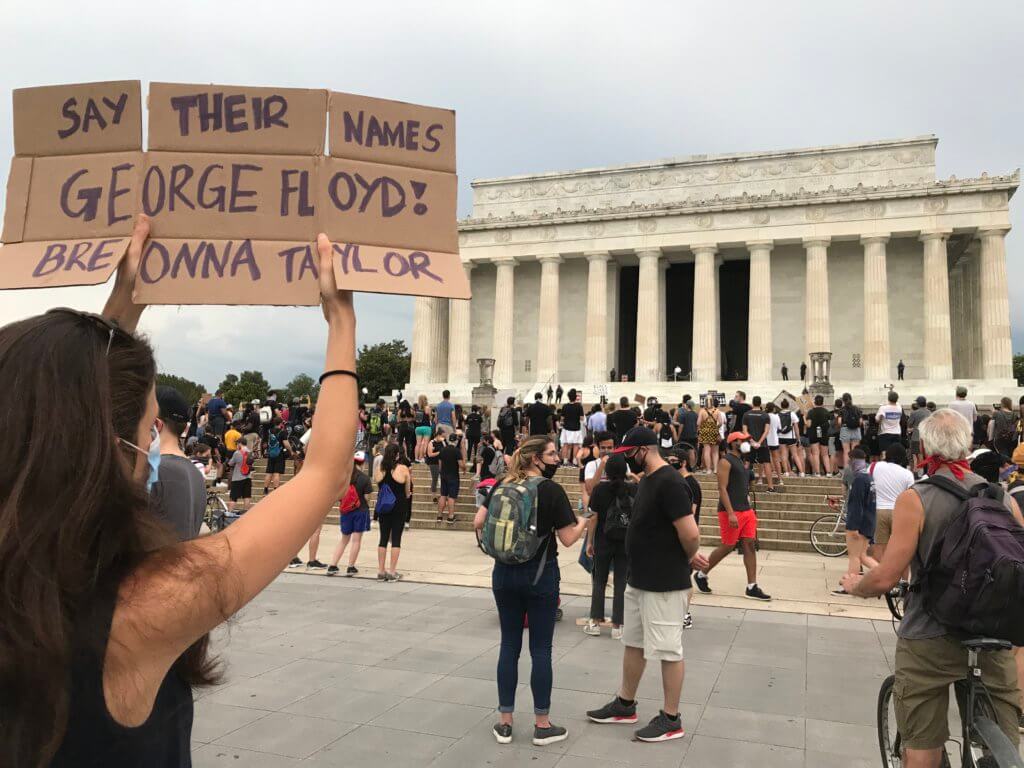
VEHICLES FOR CHANGE
At a time when discussions around racial equity and structural racism were bubbling up in mainstream discourse, fueled in part by the COVID-19 pandemic lockdowns; George Floyd’s murder provided very tangible, literal contours for a concept intimately known by so many of us, yet largely imperceptible to those with power.
The George Floyd Justice in Policing Act would create a comprehensive approach to improve the fairness and accountability of policing, end racial profiling, change the culture of law enforcement, empower our communities, and build trust between law enforcement and our communities by addressing systemic racism and bias to help save lives. That bill, endorsed by UnidosUS, was blocked twice, in 2020 and 2021 respectively, by Republicans.
The GOP’s own attempt at a policing reform package, the Justice Act of 2020, suggested a common understanding across the aisle: both proposals included nearly identical mandates for government data collection on use of force, particularly lethal force, by law enforcement officers. There still does not exist an official, standardized, and transparent federal database system to collect, analyze, and publish data on people killed by law enforcement, and no one—not even lawmakers, researchers, law enforcement officials, or the public—knows the true number of civilians injured and/or killed by law enforcement.
All this, despite the unenforced Death in Custody Reporting Act (DCRA) and the bipartisan-supported data collection provisions in at least three pieces of legislation introduced since George Floyd’s death. The multiple legislative false starts at policing reform (despite various bipartisan through-lines like data collection, use of force standards, and others) provided the grounds for President Biden’s Executive Order Advancing Effective, Accountable Policing and Criminal Justice Practices to Enhance Public Trust and Public Safety, issued today. The Executive Order calls on all federal law enforcement agencies to contribute to the FBI Use of Force Database and instructs the Attorney General to facilitate state and local law enforcement agencies to contribute use of force data. Importantly, the Attorney General is also tasked with developing a plan for full implementation of the DCRA.
WE CANNOT MATTER WHEN WE ARE NOT COUNTED
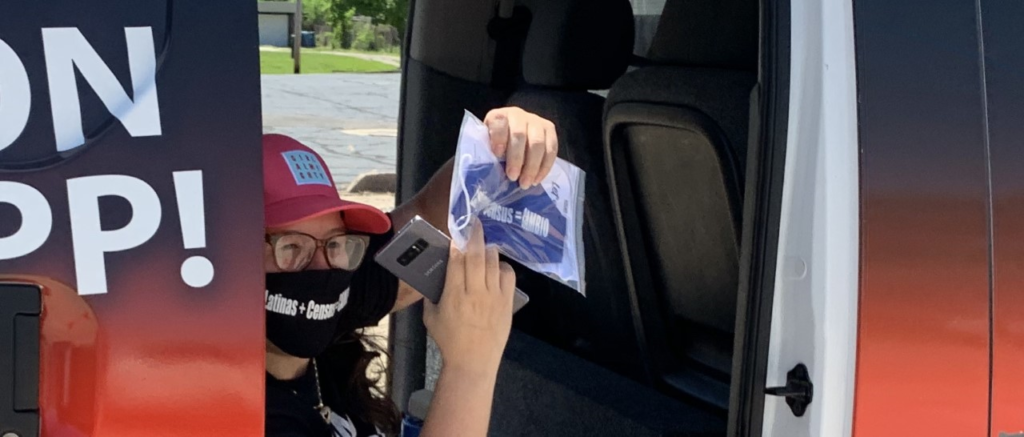
As a Latino civil rights and advocacy organization, UnidosUS has historically fought against systematic efforts to exclude and erase Latino and immigrant communities from the American political, cultural, and social fabric. One of the most foundational and utilized forms of discrimination occurs in the ways we are still not counted or recorded by the government. Instead, the willful erasure of our non-White populations continues in an unbroken line tracing from the Three-Fifths Clause to the Insular Cases to the recent Census manipulation that is resulting in gross undercounts of communities of color.
Informed by these lived experiences, UnidosUS embarked on a project in 2020 that sought to correct for the long-suspected undercount of the deaths of Latinos and other people of color by or while in the custody of law enforcement. Solutions for reform are unlikely to succeed until the true scope of the problem of police violence is understood. Good policy requires good data, and until we are counted, we do not matter.
FIGHTING INVISIBILITY
The very visible and resurgent Movement for Black Lives in 2020 left many of us waiting with bated breath, as we willed our marches in the streets to drive the change we need within the halls of Congress. Larger discussions around anti-Blackness, race, and equity dominated newsrooms, classrooms, boardrooms, and kitchen tables alike.
UnidosUS CEO and President Janet Murguía doubled down on support for and solidarity with the Black community and called on our own communities to confront and reckon with the anti-Blackness that exists within them. We held challenging internal conversations on the role Latinos play in promoting racial reconciliation and on how to center and highlight the intersectional experiences of Afro-Latinidad when we talk about Latinos and Latino identity.
We worked with sister legacy civil rights organizations to bring together civil rights and law enforcement leaders and elected officials to examine practicable options for policing reform, and together we launched projects to understand the role police budgets may play in the perpetuation of racial inequities.
In summer 2021, when Washington D.C. Mayor Muriel Bowser announced that Black Lives Matter Plaza would become a permanent installation, the Movement’s visibility became literal—its message legible from the very steps of the White House.
FIGHTING IN PLAIN SIGHT
On this second anniversary of George Floyd’s murder, we are, yet again, gripped by national heartbreak learning of the unspeakable violence that took at least 21 lives from a Texas elementary school just yesterday. A mere 10 days earlier, on May 14, 2022, a white nationalist teenager armed with military weapons drove hours to a grocery store in a predominantly Black neighborhood intending to “terrorize all nonwhite, non-Christian people and get them to leave the country.”
On that Saturday in May, we witnessed a racially motivated act of domestic terror.
Today of all days, we are reminded that as our communities of color grow in size, power, and influence, so do the targets placed on our backs. It is no longer enough to demand comprehensive police reform and a justice system that serves and protects the safety and well-being of its citizens, regardless of race. Communities of color also need a holistic whole-of-government response to the racism and hate that have metastasized to the very heart of the American spirit.

